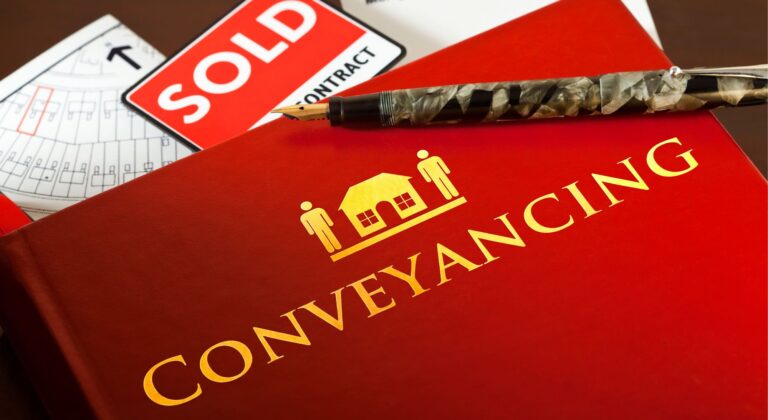
Finding the right conveyancer is crucial when it comes to buying or selling property in Melbourne. A conveyancer plays a vital role in ensuring a smooth property transaction, handling legalities, and protecting your interests. In this article, we will guide you through the process of choosing the best conveyancers in Melbourne, considering their role, responsibilities, and important factors to consider. We will also discuss the steps involved in finding and hiring a conveyancer, as well as what to expect after making your decision.
Understanding the Role of a Conveyancer
Before diving into the details of selecting the best conveyancer, it is important to understand the significance of conveyancing Melbourne in property transactions. Conveyancing refers to the legal process of transferring property ownership from one party to another. A conveyancer acts as a middleman, facilitating the transaction and ensuring all legal requirements are met.
Conveyancers handle various tasks, including preparing contracts, conducting title searches, organizing property inspections, liaising with financial institutions, and settling the property transfer. Their role is critical in ensuring that the transaction is conducted in compliance with applicable laws and regulations.
The Importance of Conveyancing in Property Transactions
Conveyancing plays a crucial role in property transactions for several reasons. Firstly, it provides legal protection to both buyers and sellers, ensuring that the transaction is carried out according to the law. It helps in identifying any potential issues or restrictions related to the property that may affect the transaction. Click here to get what you need to know about conveyancing.
Moreover, conveyancing ensures that all necessary documents and paperwork are properly completed and filed. This includes transferring the title deeds, registering the property with relevant authorities, and handling any financial settlements. Conveyancing minimizes the risk of disputes and ensures a smooth transfer of ownership.
Key Responsibilities of a Conveyancer
When choosing a conveyancer, it is essential to understand their key responsibilities. A competent conveyancer should be proficient in handling various tasks, including:
Preparing contracts
Drafting legally binding contracts that accurately reflect the terms and conditions of the property transaction.
Conducting title searches
Searching for any encumbrances or restrictions that may affect the property, such as outstanding mortgages, liens, or easements.
Organizing property inspections
Arranging inspections to ensure the property is in good condition and free from any structural defects or issues.
Liaising with financial institutions
Coordinating with banks or other financial institutions involved in financing the property purchase.
Settling the property transfer
Facilitating the transfer of ownership by ensuring all necessary documents are properly signed, filed, and registered.
Additionally, a conveyancer may also assist in conducting due diligence on the property, which involves researching its history, checking for any outstanding taxes or debts, and verifying the accuracy of property boundaries. This thorough investigation helps to uncover any potential issues that may affect the value or usability of the property.
Furthermore, a conveyancer plays a crucial role in communicating with all parties involved in the transaction, including real estate agents, solicitors, and other professionals. They act as a central point of contact, ensuring that everyone is kept informed and that the transaction progresses smoothly.
Another important responsibility of a conveyancer is to provide advice and guidance to their clients throughout the entire process. They can help buyers understand the terms and conditions of the contract, explain any legal jargon, and address any concerns or questions that may arise. For sellers, a conveyancer can provide guidance on pricing the property, negotiating offers, and ensuring a successful sale.

Factors to Consider When Choosing a Conveyancer
Now that you understand the role and responsibilities of a conveyancer, it is important to consider certain factors when selecting the best conveyancer in Melbourne.
Buying or selling a property can be a complex process, and having an experienced and knowledgeable conveyancer by your side can make all the difference. Here are a few additional factors to consider when choosing a conveyancer:
Experience and Expertise
One of the most important factors to consider is the conveyancer’s experience and expertise. Look for conveyancers who specialize in property transactions and have a strong track record in handling similar cases. They should have extensive knowledge of property law and a thorough understanding of the local market.
Having an experienced conveyancer can help navigate any potential challenges that may arise during the transaction process, ensuring a smooth and efficient experience. Don’t hesitate to ask for references or testimonials from previous clients to evaluate their performance and level of satisfaction.
Communication and Transparency
Effective communication is crucial during the property transaction process. Choose a conveyancer who is responsive, easily accessible, and keeps you well-informed throughout the entire process. They should promptly address any queries or concerns you may have and provide regular updates on the progress of the transaction.
Transparency is equally important. The conveyancer should provide a clear breakdown of all costs involved, including their fees and any additional expenses. Avoid conveyancers who have hidden costs or provide unclear explanations. A transparent conveyancer will ensure that you have a clear understanding of the financial aspects of the transaction.
Pricing and Fees
Consider the pricing structure and fees charged by the conveyancer. While it’s important to ensure you are getting a fair value for the services provided, be cautious of conveyancers who offer significantly lower prices than their competitors. Quality conveyancing services often come at a reasonable cost, so prioritize value for money over the cheapest option.
Request a detailed quote that outlines all costs involved and compare it with quotes from other conveyancers to make an informed decision. Remember, the cheapest option may not always be the best choice when it comes to something as important as property transactions.
By considering these additional factors, you can make an informed decision when choosing a conveyancer in Melbourne. Remember, the right conveyancer can provide you with peace of mind and ensure a smooth and successful property transaction.
The Process of Finding a Conveyancer in Melbourne
Researching Potential Conveyancers
Start by researching potential conveyancers in Melbourne. When delving into the world of conveyancing, it’s essential to look for professionals who not only hold the necessary licenses but also boast a solid reputation within the industry. A strong online presence can often be a good indicator of a conveyancer’s commitment to transparency and accessibility. By exploring their websites, online reviews, and ratings, you can gain valuable insights into their credibility and client satisfaction levels.
Furthermore, don’t underestimate the power of word-of-mouth recommendations. Reach out to friends, family members, or trusted real estate agents who have previously engaged the services of a conveyancer. Their firsthand experiences can offer a unique perspective on the conveyancer’s professionalism, efficiency, and ability to navigate complex property transactions.
Consider exploring industry-specific forums or social media groups to gather additional feedback on potential conveyancers. Engaging with online communities can provide a wealth of information and personal anecdotes that may influence your decision-making process.
Interviewing Prospective Conveyancers
Once you have narrowed down your list of potential conveyancers, it’s time to take the next step by scheduling interviews or initial consultations with them. These meetings serve as a valuable opportunity to assess their expertise, communication style, and overall suitability for your specific requirements. Prepare a comprehensive list of questions to pose during the meeting, focusing on areas such as their experience, service offerings, transaction approach, and availability.
Engage in open discussions about their previous cases, problem-solving strategies, and any unique selling points that set them apart in the competitive conveyancing landscape. Pay close attention to how effectively they address your queries and concerns, as clear and transparent communication is the cornerstone of a successful client-conveyancer relationship.
Making the Final Decision
Evaluating Your Options
After interviewing potential conveyancers, carefully evaluate your options. Consider their experience, expertise, communication skills, and the overall impression they made during the interviews. Take into account any references, client reviews, or testimonials you may have gathered.
It’s also essential to inquire about the conveyancer’s workload and availability to ensure they can dedicate sufficient time to your transaction. Additionally, discuss their approach to communication and how often they will provide updates on the progress of your property transfer.
Ultimately, choose a conveyancer who best aligns with your requirements and provides confidence in handling your property transaction.
Signing the Contract
Once you have made your decision, it’s time to sign the contract with your chosen conveyancer. Review the contract carefully, ensuring that all the terms and conditions are clearly stated and agreed upon. Seek legal advice if you have any doubts or concerns before signing.
Before signing the contract, inquire about the conveyancer’s professional indemnity insurance coverage. This insurance protects you in case of any errors or negligence on the conveyancer’s part during the transaction process.
Expect to pay a deposit or initial fee when signing the contract, as conveyancers typically require upfront payment to commence their services.

What to Expect After Hiring a Conveyancer
The Conveyancing Process
Once you have hired a conveyancer, they will guide you through the conveyancing process. They will keep you informed about key milestones and legal requirements, ensuring that all necessary documents are properly prepared, reviewed, and submitted.
Your conveyancer will liaise with all relevant parties, including real estate agents, financial institutions, and legal representatives, to ensure a smooth transaction. They will handle any challenges or issues that may arise during the process and work towards a successful property transfer.
Potential Challenges and How to Handle Them
While a good conveyancer will strive to make the process as smooth as possible, challenges can still arise during property transactions. These can include issues with property inspections, disputes over contract terms, or delays in obtaining finance approval.
If any challenges occur, communicate openly with your conveyancer and seek their guidance on how to handle the situation. Trust their expertise and allow them to navigate through any obstacles, resolving them in your best interests.
One potential challenge that may arise during the conveyancing process is a title defect. This can occur when there are issues with the property’s ownership history or legal rights. Your conveyancer will conduct a thorough title search to identify any potential defects and work with you to resolve them. They may recommend obtaining title insurance to protect your interests in case any issues arise in the future.
Another challenge that can arise is a break in the chain of transactions. This happens when there are multiple parties involved in buying and selling properties, and one transaction falls through, causing a domino effect. Your conveyancer will work diligently to ensure that all parties involved are in sync and that the chain remains unbroken. They will communicate with all relevant parties to keep the process moving forward and minimize any potential delays.
Choosing the best conveyancers in Melbourne is a critical step in ensuring a successful property transaction. By understanding the role of a conveyancer, considering important factors, and following a systematic process, you can find the right conveyancer who will protect your interests and guide you through the complex process of buying or selling property in Melbourne.

